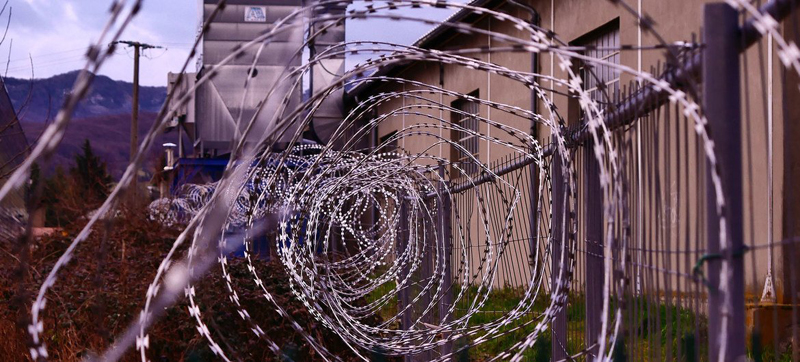 Europe Mental Health
Europe Mental Health
WHO reveals one-third of prisoners in Europe suffer mental health disorders
One in three prisoners in Europe suffer from mental health disorders, the World Health Organization (WHO) said in a new report launched on Tuesday.
While European prisons managed adequate COVID-19 pandemic responses for inmates, concerns remain about poor mental health services, overcrowding and suicide rates, the report stated.
“Prisons are embedded in communities and investments made in the health of people in prison becomes a community dividend,” said Dr. Hans Henri P. Kluge, regional director of the WHO regional office for Europe. “Incarceration should never become a sentence to poorer health. All citizens are entitled to good-quality health care regardless of their legal status.”
Monitoring 600,000 inmates
The second status report on prison health in the WHO European region provides an overview of the performance of prisons in the region based on survey data from 36 countries, where more than 600,000 people are incarcerated.
Findings showed that the most prevalent condition among people in prison was mental health disorders, affecting 32.8 per cent of the prison population.
Established in 2016 to address the information gap on prison health in the region, the WHO Health in Prisons European Database, identifies areas that need attention. It also monitors the health of people in prison with a view to assessing the institutions’ health systems, feeding into health services overall.
“When prisons are excluded from the general health system, local communities can be the hardest hit,” Dr. Kluge cautioned.
Suicide, overcrowding
The report drew attention to several areas of concern, including overcrowding and a lack of services for mental health, which represents the greatest health need among people in prison across the region.
Conducted in 2021, the survey took a retrospective look on 2020, as the world was grappling with the onset of the COVID-19 pandemic. The most common cause of death in prisons was suicide, with a much higher rate than in the wider community, the report found.
In addition, findings showed that one in five Member States reported prison overcrowding, which has various negative consequences for health. The report suggested that alternative non-custodial measures are considered for offences that do not present a high risk to society and where more effective measures exist, such as diversion to treatment for drug use disorders.
Alternatives needed
WHO regional advisor for alcohol, illicit drugs and prison health, Carina Ferreira-Borges, said supporting people released from prison to reintegrate in the community and access health services, can reduce the likelihood of reoffending.
“The issue of overcrowding in prisons evident in this report is an important reminder of our overreliance on incarceration and the need for alternatives,” she said. “Ministries of health play a critical role in protecting the basic human right to health. This report highlights the value of a health and human rights-focused approach in dealing with offenders, providing important insights into the specific steps that can be taken to improve our systems, for people in prison and for all of society.”
Unique programme
WHO advocates for greater involvement of health ministries in the delivery of healthcare in prisons across the region.
The WHO regional office in Europe has been working on prison health since 1995, establishing the world’s only health in prisons programme, which aims at monitoring and providing evidence to inform the development of related policy and legislative frameworks.
Support Our Journalism
We cannot do without you.. your contribution supports unbiased journalism
IBNS is not driven by any ism- not wokeism, not racism, not skewed secularism, not hyper right-wing or left liberal ideals, nor by any hardline religious beliefs or hyper nationalism. We want to serve you good old objective news, as they are. We do not judge or preach. We let people decide for themselves. We only try to present factual and well-sourced news.







